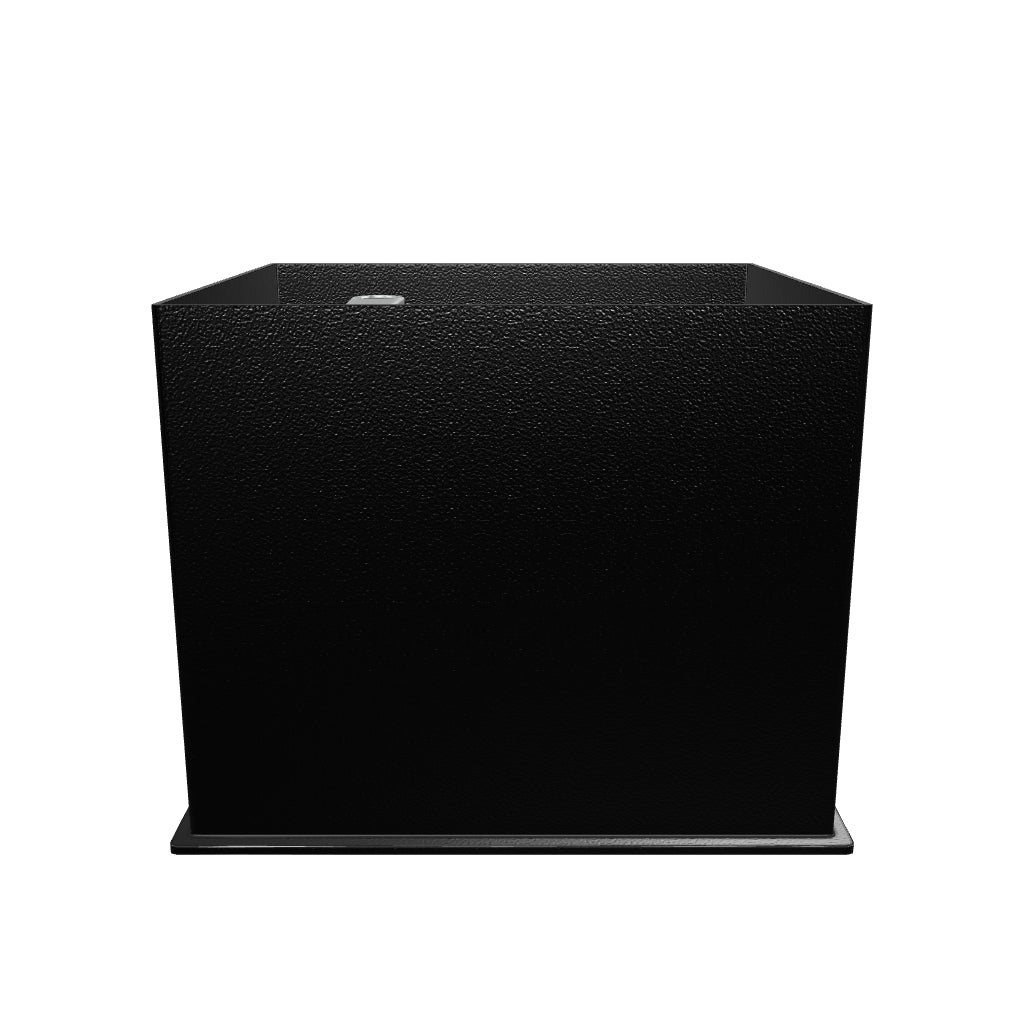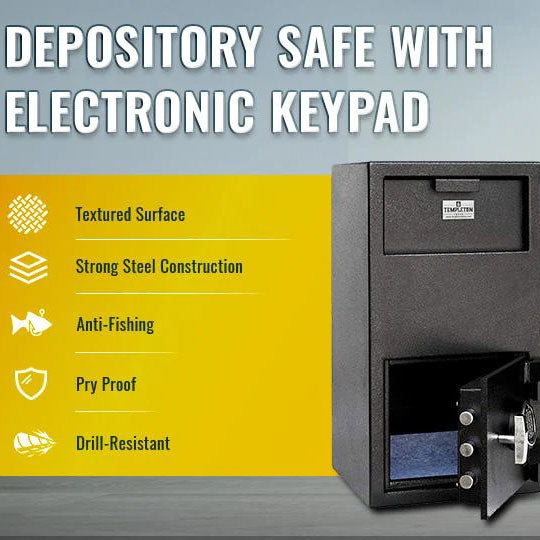The Future of Healthcare Security: Biometric Safes Unveiled
In an age where technology continues to advance at breakneck speed, it's no surprise that healthcare facilities are looking to innovative solutions to enhance their security. One such advancement that's been making waves in the healthcare security sector is the introduction of biometric safes. These cutting-edge devices are revolutionizing the way healthcare facilities store and manage sensitive information, medications, and valuable assets. In this article, we'll delve into the exciting world of biometric safes and explore how they're poised to shape the future of healthcare security.
Understanding the Need for Enhanced Healthcare Security
Before we dive into the details of biometric safes, it's important to understand the critical need for improved security in healthcare facilities. Patient records, pharmaceuticals, medical equipment, and other valuable assets need to be safeguarded to maintain patient confidentiality, adhere to legal regulations, and prevent unauthorized access.
Challenges in Conventional Security
Traditionally, healthcare facilities have relied on conventional security measures such as locks and keys, security personnel, and surveillance cameras. While these methods are effective to some extent, they have their limitations. Keys can be lost or stolen, security personnel may not be able to monitor every corner of a large facility, and surveillance cameras can be tampered with.
As the healthcare industry evolves, so do the threats it faces. Data breaches, theft, and unauthorized access are becoming increasingly sophisticated. This calls for a more advanced and foolproof security solution, and that's where biometric safes step in.
Biometric Safes: The Game-Changers
What Are Biometric Safes?
Biometric safes are a specialized type of safe that use biometric authentication methods to secure their contents. Biometrics refers to the unique physical or behavioral characteristics of an individual that can be used for identification. These characteristics can include fingerprints, palm prints, retinal scans, and even facial recognition.
How Do They Work?
Biometric safes are designed to be user-friendly and highly secure. Users can enroll their biometric data, typically through a quick and painless setup process. Once enrolled, the safe's locking mechanism can be configured to open only when the authorized user's biometric data matches the stored information. This means that only the authorized personnel can access the safe, making it incredibly difficult for unauthorized individuals to gain entry.
Benefits of Biometric Safes in Healthcare Security
Enhanced Security
The primary advantage of biometric safes in healthcare security is their unmatched level of protection. With biometric authentication, there's no need to worry about lost keys, forgotten codes, or unauthorized duplication of access credentials. The unique nature of biometric data ensures that only authorized personnel can access the safe's contents.
Audit Trail
Many biometric safes come equipped with features that allow for detailed tracking and recording of access. This creates a comprehensive audit trail, making it easy to monitor who accessed the safe, when they did it, and what they did while inside. This information can be invaluable in the event of a security breach or internal investigation.
Quick Access
In emergency situations, quick access to medical supplies or critical documents can be a matter of life and death. Biometric safes offer rapid access without compromising security. Authorized personnel can open the safe in a matter of seconds, ensuring that life-saving medications or equipment are readily available when needed.
Versatility
Biometric safes are incredibly versatile. They can be used to store a wide range of items, from pharmaceuticals and patient records to valuable assets like medical equipment and personal belongings of staff. The ability to customize access permissions for each individual ensures that different personnel can access only what is relevant to their responsibilities.
Types of Biometric Safes
Biometric safes come in various types, each designed to cater to specific needs:
Fingerprint Biometric Safes
Fingerprint biometric safes are among the most popular. They use the unique patterns of an individual's fingerprints for authentication. These are easy to use and offer a high level of security.
Retinal Scan Safes
Retinal scan safes use the unique patterns of the user's retina for authentication. They are highly secure but can be more expensive than other options.
Palm Print Safes
Palm print safes use the unique patterns of the user's palm for authentication. They are known for their speed and accuracy.
Facial Recognition Safes
Facial recognition safes are the latest trend in biometric security. They use facial features for authentication and are known for their convenience.
Implementing Biometric Safes in Healthcare Facilities
Factors to Consider
Before integrating biometric safes into a healthcare facility, several factors need to be carefully considered:
Compliance with Regulations
Healthcare facilities are subject to stringent regulations, such as HIPAA (Health Insurance Portability and Accountability Act). Ensure that the chosen biometric safe complies with these regulations to avoid legal issues.
Integration with Existing Systems
Biometric safes should seamlessly integrate with the facility's existing security systems. This ensures a cohesive and efficient security framework.
Scalability
Consider the future needs of your facility. Ensure that the biometric safe solution is scalable to accommodate growing storage requirements.
Training and User Education
Proper training and education are crucial. Staff members need to be well-versed in using the biometric safe to ensure its effective implementation.
Real-World Application
Imagine a scenario where a nurse in a busy hospital needs immediate access to a specific medication stored in a biometric safe. With a simple fingerprint scan, the nurse gains access in seconds, avoiding potential delays that could impact patient care. This is just one of the many real-world applications of biometric safes in healthcare facilities.
Addressing Concerns and Misconceptions
While biometric safes offer numerous advantages, some concerns and misconceptions need to be addressed:
Privacy Concerns
Some individuals may worry about their biometric data being stored and potentially misused. However, it's essential to choose reputable manufacturers and systems that prioritize data security and follow strict privacy protocols.
Cost
Biometric safes can be more expensive than traditional safes. However, the enhanced security, convenience, and peace of mind they offer can outweigh the initial cost.
Reliability
Biometric technology has advanced significantly and is now highly reliable. Modern systems are designed to function in various environmental conditions and have low false positive rates.
The Future of Healthcare Security
As technology continues to advance, the future of healthcare security will undoubtedly involve more sophisticated solutions. Biometric safes represent a significant step in the right direction. They not only offer enhanced security but also streamline access to critical healthcare resources.
In the years to come, we can expect to see further developments in biometric technology, making these systems even more secure and user-friendly. As healthcare facilities increasingly adopt biometric safes, patient data will be better protected, medications will be more readily accessible, and the overall security of healthcare facilities will reach new heights.
Conclusion
Biometric safes are a game-changer for healthcare security. With their advanced authentication methods, quick access, and versatility, they provide a robust solution for safeguarding patient data and valuable assets. While some concerns exist, choosing reputable manufacturers and ensuring compliance with regulations can address most issues. As technology continues to evolve, biometric safes will likely become an integral part of healthcare security, setting new standards for the industry. By embracing this innovative technology, healthcare facilities can ensure that patient care remains the top priority while maintaining the highest level of security.






























